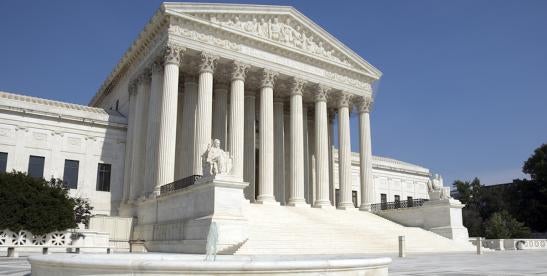Civil forfeiture allows the government — typically police or other law enforcement — to seize and keep or sell property that is allegedly involved in a crime or illegal activity. While civil forfeiture law varies between jurisdictions, the law generally allows for the seizure of property, even without a warrant, upon the government’s (minimal) showing of probable cause to believe that the property constitutes proceeds of — or was used to commit or facilitate — a wide array of criminal activity, including fraud, corruption, and narcotics trafficking. The owner of the property need not ever be charged with a crime, let alone arrested or convicted, before their property is seized.
Civil Forfeiture: What Hearings Are Constitutionally Required?
Under existing law, owners have a Constitutional right to a “timely” forfeiture hearing, at which they may challenge the forfeiture by, among other things, establishing a so-called “innocent owner” defense — i.e., that the owner did not know of the criminal conduct or, upon learning of the conduct, did all that reasonably could be expected under the circumstances to terminate the criminal use of the property. At issue in Culley v. Marshall, a U.S. Supreme Court case decided earlier this month, was the question whether — in addition to a timely forfeiture hearing — the Constitution also requires a separate “preliminary hearing” immediately after the seizure to determine whether the police may retain the property pending the subsequent forfeiture hearing.
The facts in Culley were undisputed. Halima Culley loaned her car to her son, who was later pulled over by Alabama police officers and arrested for possession of marijuana. Her car was seized under an Alabama civil forfeiture law that permitted seizure of a car “incident to an arrest” so long as the state then “promptly” initiated a forfeiture case. The state of Alabama timely filed a forfeiture complaint against Culley’s car. While the forfeiture proceedings were pending, Culley filed a class-action complaint against the state, claiming that state officials violated her due process rights by retaining her car during the forfeiture process without holding a preliminary hearing right after the seizure.
Narrow Issue, Critical Effect
Though the issue in Culley may seem like a narrow one, the widespread use of civil forfeiture and the sheer numbers at stake make the question of a preliminary hearing — and other procedural protections from civil forfeiture — of critical importance. As Justice Neil Gorsuch recognized in his Culley concurrence, civil forfeiture has become a “booming business” for the government. In 2018, federal forfeitures alone brought in $2.5 billion. Meanwhile, up to 80% of civil forfeitures are not accompanied by a criminal conviction. Moreover, local law enforcement agencies have become increasingly dependent on the money they raise from civil forfeitures. The federal government shares a large portion of what it receives with state and local law enforcement agencies that aid its forfeiture efforts.
Questions surrounding the constitutionality of civil forfeiture are heightened by the asymmetry in resources between the government and property owner. The costs of litigating a civil forfeiture case; the need, typically, for the owner to personally appear in court (sometimes in a different state); and the length of time it often takes to challenge forfeiture — along with the low preponderance of the evidence standard that the government must produce to win forfeiture — all provide strong incentives for even innocent owners to settle with the government or to just give up. Justice Clarence Thomas, in a 2017 statement on the denial of certiorari in another civil forfeiture case, Leonard v. Texas, described the “egregious and well-chronicled abuses” of civil forfeiture, and noted that it is “the poor and other groups least able to defend their interests that are often most affected” by the process.
Divided Court Holds that Constitution Only Requires a Timely Forfeiture Hearing—Not a Preliminary Hearing
The Court in Culley, relying on its precedents, left in place the status quo, holding that, in civil forfeiture cases, the Due Process Clause requires only a timely forfeiture hearing, not a separate preliminary hearing. That means the burden will remain on owners like Culley to go through the expense, inconvenience, and time to litigate with the government at a forfeiture hearing.
Broader Questions Remain
But the broader question articulated by Justice Gorsuch remains: “Why does a nation so jealous of its liberties tolerate expansive new civil forfeiture practices that have led to egregious and well chronicled abuses?” The divided decision in Culley, with Justice Gorsuch’s skeptical concurrence and a strong three-member dissent — along with Justice Thomas’s view in Leonard that the Court’s justification of modern forfeiture practice “is certainly worthy of consideration in greater detail” — suggests that the Court will likely take up and favorably consider future cases challenging the constitutionality of civil forfeiture procedures.




 />i
/>i


